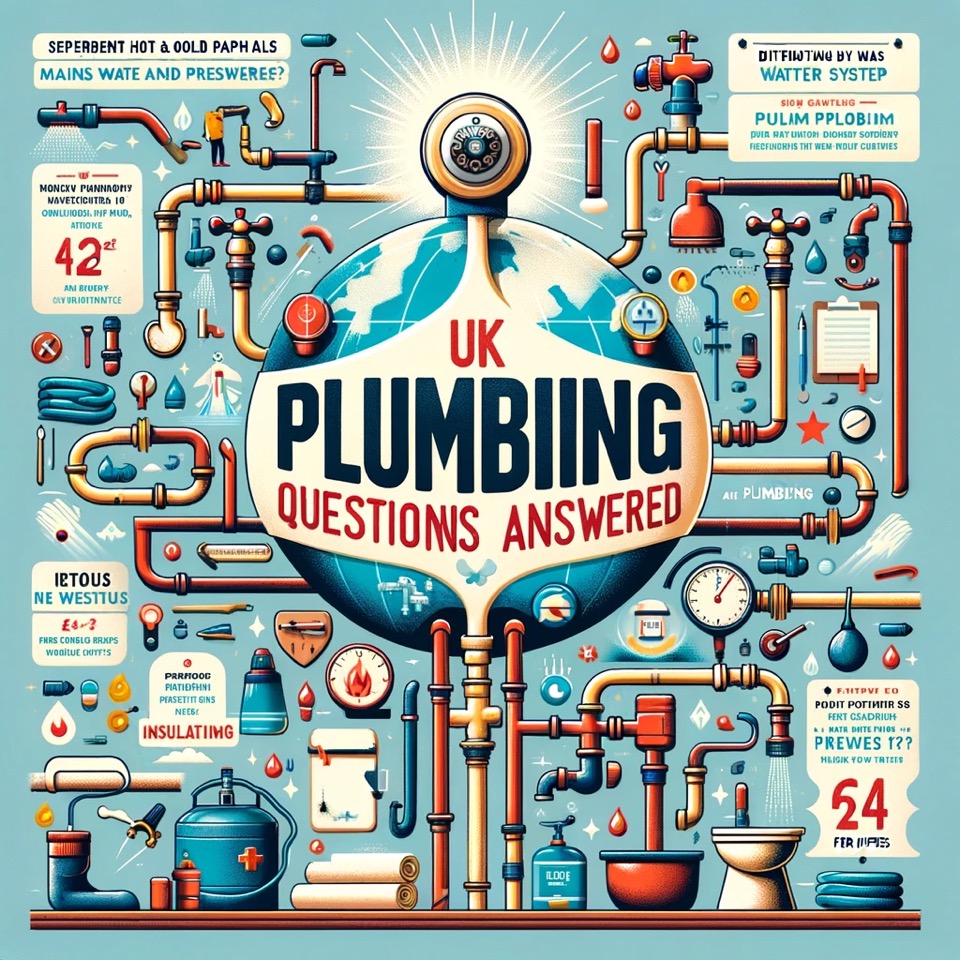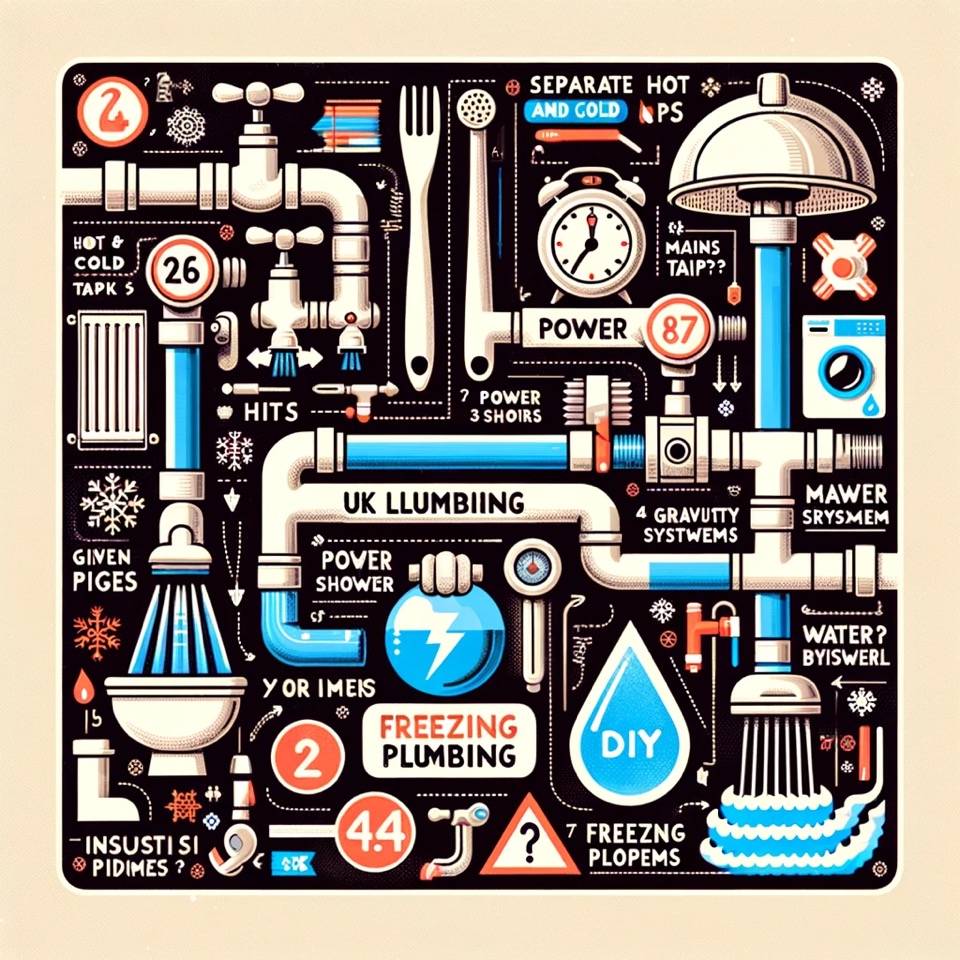Understanding UK Plumbing: Common Questions Answered
The plumbing FAQ page is new in February 2024 and is expected to have a navigation system to new exciting articles soon.
Plumbing systems are vital for the comfort and functionality of any home, but they can often be a source of confusion and concern, especially considering the unique aspects of UK plumbing. From historical pipe materials to modern regulations, the UK's plumbing landscape is diverse. This article aims to address some of the most common plumbing questions specific to the UK, helping homeowners navigate their water systems more effectively.


What's the Difference Between Mains Water Pressure and Gravity Systems?
In the UK, homes are typically supplied with water through one of two systems: mains pressure or gravity-fed systems. Mains pressure systems are directly connected to the public water supply and deliver water at the pressure available in the mains, which can be quite high. Gravity systems, on the other hand, rely on a cold water tank (usually in the loft) to supply water, with gravity creating the pressure as water flows down. Mains pressure systems offer consistent pressure but require compatible fixtures, while gravity systems can have varying pressure levels, especially on higher floors.
Why Do Some UK Homes Have Separate Hot and Cold Taps?
The tradition of separate hot and cold taps in the UK dates back to historical plumbing practices when hot water systems were not considered safe for drinking due to the possibility of contamination from storage tanks. Thus, separate taps ensured that only cold water, drawn directly from the mains, was used for consumption. While modern systems are safe, and mixer taps have become more common, many homes still feature separate taps, partly out of tradition and partly due to the extensive changes needed to retrofit older sinks.
Can I Install a Bathroom Anywhere in My Home?
With the advent of macerators and pumped waste systems, it's become possible to install a bathroom in virtually any part of a UK home, even below the sewer line or far from the main waste pipe. However, such installations must comply with building regulations, and it's advisable to consult with a professional plumber to ensure proper installation and avoid issues with waste disposal and venting.
What Is a Power Shower, and How Does It Work?
A power shower is a popular feature in UK homes, especially those with low water pressure. It combines water from both the hot and cold supplies and uses an electric pump to boost the pressure before delivering it through the showerhead. Power showers offer a more invigorating shower experience but require compatible plumbing systems and can be more expensive to run due to the additional electricity usage.
How Do I Prevent Pipes from Freezing in the Winter?
Freezing pipes are a common concern in the UK, especially in unheated areas like lofts or exterior walls. To prevent freezing, it's recommended to insulate pipes, keep the heating on at a low level during cold spells, and fix any drips or leaks that could lead to ice formation. In severe cold, leaving cabinet doors open to allow warm air to circulate around pipes under sinks can also help.
Is DIY Plumbing Allowed in the UK?
DIY plumbing is permissible for many tasks, such as changing taps or installing appliances. However, work that involves gas or the main water supply usually requires a certified professional to ensure compliance with safety regulations and building codes. Always check the current regulations before undertaking plumbing work, as incorrect installations can lead to damage requiring an emergency plumber, legal issues, and safety hazards.
Conclusion: UK plumbing systems, with their unique characteristics and regulations, can often prompt a myriad of questions from homeowners. Understanding the basics, such as the types of water systems and the rationale behind certain plumbing standards, can demystify many common concerns. Whether tackling a DIY project or planning major plumbing work, it's crucial to stay informed and consult professionals when necessary to ensure safe and efficient plumbing solutions.